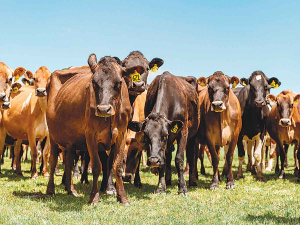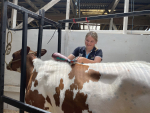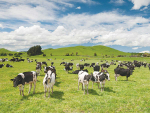The challenge for Kiwi farmers to reduce herd size while maintaining or building production is generating an increase in demand for overseas genetics, says World Wide Sires.
The US genetics company's NZ manager of sales and marketing, Craig Robertson, said the use of high performance genetics – cows capable of averaging more than 700kgMS per year over multiple lactations – is one of the fastest pathways to achieving the industry goal.
“The leap, from the NZ per cow average of 381kgMS (New Zealand Dairy Statistics 2018-2019) can’t be achieved in one season, but a growing number of farmers are setting their sights on transforming their herds, and profit margins, over the next decade.
“Increasing the production of the average New Zealand herd of 435 cows from today’s average of 381kgMS to a modest (by overseas standards) 500kgMS equates to a per cow increase of 119kgMS. At a payout of $6.50 this equates to an additional $336,472 of income. And that’s just the beginning.”
Robertson said, in the last 26 years, average per cow production in New Zealand has increased by just 122kgMS/cow.
“Thanks to genomics, that level of gain is increasing, but too slowly, because of the small database, to achieve the industry aim. To fast-track genetic gain and achieve the consequent profitability and sustainability, farmers need to look overseas to larger and more diverse populations of dairy genetics.
“[WWS] was one of the first companies in the world to launch a successful commercial genomic product and today our active line-up comprises 669 genomic and 347 proven bulls across all breeds.
“The success of our genomic offering – and farmer confidence – comes down to a predictor group database which includes more than 60,540 proven bulls and 2,063,622 cows across all breeds. There is no larger database in the world that can match that, or the reliability it enables. The correlation between the genomic prediction and what the daughter actually produces is statistically reliable and consistently very high.”
Moving away from generations of commitment to Breeding Worth isn’t done overnight, said Robertson, but faced with the inevitability of a future with fewer, more productive animals, farmers are realising there is an alternative.











